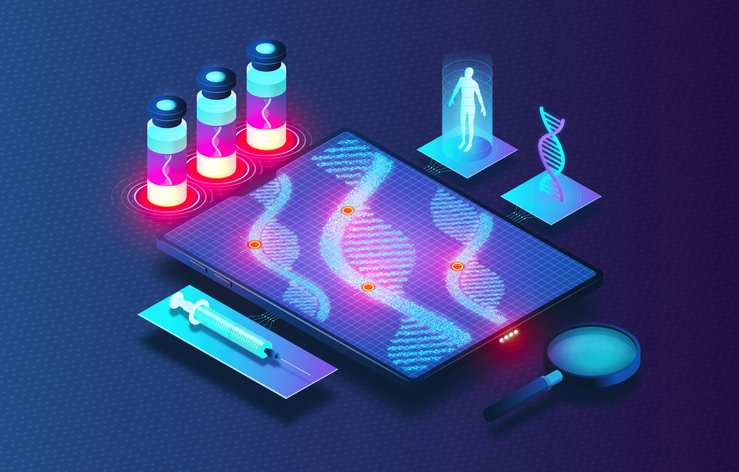About 60 per cent of 60-year-old men have erectile dysfunction, and 40 to 80 per cent of women have some sort of sexual dysfunction, but there are experts who can help
By Carolyne Ann Boileau
It the idea might surprise a 25-year-old, but there’s no reason you can’t have a satisfying sex life at the age of 60, 70, or even 80. The benefits of physical and emotional intimacy at any age are obvious—a sense of connection, acceptance, sharing, and well-being.
“Sexual relationships later in life can be more satisfying than at age 40 because people have fewer hang-ups; they’re attentive to their own needs and more able to loosen up,” says Marie-Ève Prince, a physiotherapist specializing in pelvic-perineal rehabilitation and the owner of Cigonia, a clinic in Sherbrooke, Que.
However, according to Prince, “of those who are sexually active at age 70, 46 per cent are men but only 16 per cent are women.” Aging can bring with it some inconveniences that discourage or inhibit both men and women when it comes to having fun in the bedroom, and a couple needs to be on the same page with regard to desire; the figures Prince cites suggest that’s often not the case.
Menopause and Andropause
The average age for the onset of menopause is 51.4—a woman’s body stops producing estrogen and progesterone. With the onset of perimenopause (two to eight years before menstruation stops), the libido begins to decline naturally except, perhaps, for women who choose hormone replacement therapy.
For men, the timing of andropause—the natural decrease in the production of sex hormones—varies quite a bit more. It can begin in their 50s, or not until their 70s—or never. “I don’t like calling it ‘andropause,’ as this gives the impression that all men will go through it, which isn’t the case,” says Dr. Carlos Marois, a Montreal urologist. So no one should be surprised that an 80-year-old man can have a healthy sexual appetite—though many people are. The sexuality of the not-so-young is a taboo subject that needs demystifying. Fortunately, there are experts like Prince who give awareness presentations to health professionals and the staff of seniors residences.
In addition to declining hormones, there are other reasons that, with some exceptions, a person’s sexual activity tends to decrease over time. “There’s an increase in physical health problems and an increase in sexual issues that can affect intimate relationships,” Prince says. For women, several factors can make intimacy painful and less satisfying as they age. For men, difficulty getting or maintaining an erection is the main concern. For both women and men, overall health is a consideration. But whether someone is menopausal or has diabetes, high blood pressure, or low testosterone, there are many treatments available to help regain a sex life that is as tender as it is enjoyable.
Here’s an overview of the main sexual disorders and suggestions to improve or reverse these conditions.
For Women
Vaginal Atrophy
What is it? Before menopause, the vagina has folds and is moist. Once menstruation has stopped for good, the lining begins to atrophy, becoming dry, pale, and smooth; the vagina gradually loses elasticity, making intercourse painful.
What can you do about it?
– To address vaginal dryness, try using a natural lubricant, such as coconut oil or shea butter, or a commercial personal lubricant designed for this use, in the vagina. Sensitive tissues much prefer non-chemical ingredients.
– Explore pelvic-perineal rehabilitation with a physiotherapist who has expertise in this area. “It’s a first-line treatment to help the vagina regain flexibility,” Prince says. “In general, we’re talking about five treatments over 12 weeks. Sometimes, we see enough improvement after two sessions that we can change to maintenance visits. But people absolutely must do the stretching and contracting exercises at the recommended frequency—and have a minimum amount of sexual activity. It’s well worth it, as the success rate is very high [80 per cent].” And even if you’re no longer interested in having sex, you still need regular gynecological exams; a supple vagina will make these less uncomfortable.
– Look into local hormone therapy, which involves coating the vaginal wall with an estradiol cream (synthetic estrogen). This will be more effective than systemic hormone therapy (oral pills), as long as dryness is your only complaint. Your doctor can advise you.
– Radiofrequency treatments, which are beginning to be used in Canada, seem like a promising way to enable lubrication. Moreover, they are one avenue to consider for women who have had breast cancer, for whom hormone therapy would, in principle, be contraindicated. “Radiofrequency allows us to go deeper than with a laser,” Marois says. “Micro-needles are sent into the vaginal wall and under the skin. The quality of the tissues seems to improve; they become more flexible.” Several sessions are needed, followed by annual maintenance treatments.
Vulvar Lichen Sclerosis
What is it? This chronic skin disease most often affects menopausal women. “The skin of the vulva, clitoris, labia minora, and perineum becomes less elastic, has a ‘cardboard’ appearance, and can crack, causing pain,” Marois says. “In some cases, the vaginal wall can even close.”
What can you do about it?
– Have a biopsy done to rule out cancer.
– Apply a topical cortisone treatment to the affected area for about a month and then two or three times a week. This can be combined with local or systemic hormone therapy if the treating physician finds it appropriate.
– Pelvic-perineal rehabilitation with dilation can also improve the situation for women who have this problem.
– An intravaginal injection of platelet-rich plasma (PRP) is an experimental technique that seems to help improve the density, colour, texture, and thickness of the tissues. This painless treatment is not covered by all provincial health insurance plans.
Lack of Desire
What is it? When having sex is a chore rather than a pleasure, you might think your sex drive has vanished, but don’t panic.
What can you do about it?
– Women who have had breast cancer and those who are on hormone therapy and would like an extra boost to increase their desire can benefit from a testosterone supplement.
“These are very small doses,” Marois says. “We usually give a woman 10 to 20 times less testosterone than we give a man. In our clinics, testosterone is given as an implant in the butt. It is effective for about four months. If needed, we can also add female hormones. It’s not covered by all provincial health insurance plans, but it is a bio-identical treatment. Women get in shape and are more active, and their libido improves. Often, their partner comes to see me afterwards because he can’t keep up with her!” Marois jokes.
– Psychologists and sex therapists have been kept busy since the pandemic. A consultation with one of these professionals can help if you have decreased desire.
For Men
Erectile Dysfunction
What is it? The inability to get an erection or difficulty maintaining one, erectile dysfunction affects increasing numbers of men with each increase in the decade of their age—50 per cent of those in their 50s, 60 per cent of those in their 60s, 70 per cent in the 70s, and so on. Among the medical conditions that affect the quality of the erection, diabetes is a major culprit: 75 per cent of people with diabetes will have erectile dysfunction. Obesity, vascular disorders, smoking, the side effects of certain medications, and the after-effects of prostate surgery can also lead to problems.
What can you do about it?
– As a first step, doctors usually prescribe an oral medication such as Viagra or Cialis to treat impotence. “I see many patients who have been on it for 20 years; generally, they have more than one health condition,” Marois says.
– A second treatment could be intracavernosal injections. “If the patient doesn’t have a fear of needles, this treatment works well,” Marois says. “The person has to inject a combination of medications near the base of the penis, in the corpus cavernosum [the spongy tissue that makes up most of the penis]. It’s very easy to do. Many men over 70 do these injections regularly.”
– A last report is a penile implant. “This is a medical device implanted in the corpus cavernosum. Generally speaking, we insert either a semi-malleable implant, which doesn’t inflate but requires no manual dexterity, or an inflatable implant, which has an internal pump near the testicles,” Marois explains. The procedure is irreversible, and you can’t try intracavernosal injections afterwards.
Low Testosterone
What is it? According to Marois, testosterone drops by one to two per cent each year after the age of 40. This leads to a decrease in libido and also a loss of energy, muscle mass, endurance, and motivation. Often, it’s an underlying cause of erectile dysfunction.
What can you do about it?
– Have blood work done, including an analysis of testosterone levels. If testosterone levels are low, the doctor or urologist can prescribe a gel (Androgel), a weekly injection, or a custom-made implant that stays in place for four or five months. When the hormone in the implant is completely absorbed, a new implant must be put in.






